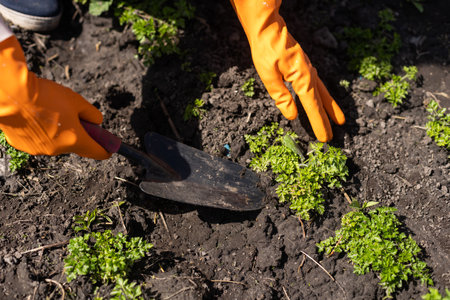Understanding Slugs and Snails in British Gardens
If you’ve ever strolled through a dewy British garden with your little ones, you’ll know that slugs and snails are familiar faces among the foliage. These creatures, with their glistening trails and slow, deliberate movements, are part of what makes exploring the outdoors so magical for children. Yet, for gardeners across the UK, they can pose quite a challenge. British slugs and snails thrive in our mild, damp climate, making them especially prevalent from spring through autumn. While their unique shapes and behaviours inspire curiosity and learning moments for families, their appetite for tender leaves and young shoots often leads to frustration when plants are nibbled overnight. Slugs, with their soft bodies, and snails, with their characteristic shells, both feast on a wide variety of garden favourites—from lettuce to hostas—leaving ragged holes behind. Understanding these creatures not only sparks wonder in our children but also helps us appreciate why managing them is such an important task for UK gardeners keen to protect their green spaces naturally.
2. Natural Deterrents: Why Choose Eco-Friendly Solutions
When it comes to protecting your beloved plants from slugs and snails, choosing natural garden sprays over chemical solutions is more than just a modern trend—it’s a thoughtful nod to the classic British tradition of harmonious gardening. Using eco-friendly methods not only preserves the vibrant ecosystem of your garden but also ensures the safety of your family, pets, and our cherished local wildlife. By opting for natural deterrents, you are embracing a holistic approach that aligns with the values of stewardship and respect for nature that have long been woven into the fabric of British gardening culture.
The Benefits of Natural Sprays
| Benefit | Natural Sprays | Chemical Sprays |
|---|---|---|
| Safety for Children & Pets | Non-toxic; safe for little hands and paws exploring the garden | Potentially harmful if touched or ingested |
| Impact on Wildlife | Protects bees, birds, hedgehogs, and beneficial insects | May disrupt local ecosystems and harm helpful creatures |
| Soil Health | Maintains healthy, living soil teeming with microbes | Can degrade soil quality over time |
| Sustainability | Made from renewable resources; biodegradable | Often petroleum-based; residues may linger in the environment |
| Cultural Tradition | Keeps alive the age-old practice of mindful gardening passed down through generations in Britain | Lacks connection to traditional gardening wisdom |
The Heart of Family Gardening: Togetherness and Responsibility
Gardening naturally encourages us to work together as a family, teaching children about responsibility, patience, and care for living things. When you choose gentle, home-made sprays—perhaps mixing up garlic or coffee solutions in the kitchen with your little ones—you’re not just protecting your plants; you’re planting seeds of environmental awareness and empathy. This hands-on experience fosters a sense of pride and accomplishment while keeping everyone safe as they explore their green sanctuary.
A British Garden Legacy Worth Passing On
By selecting natural options, we honour our gardens’ heritage—from cottage borders brimming with foxgloves to allotment rows lined with runner beans—and ensure these special spaces remain thriving havens for future generations. With every gentle spray and careful choice, we keep alive not just our plants but a tradition rooted in kindness—to each other and to nature itself.

3. Homemade Garden Spray Recipes: Safe for Children and Pets
Gardening in the UK is a true family affair, often involving curious little hands and beloved pets exploring every nook and cranny. Thats why natural solutions are so important when it comes to protecting your plants from slugs and snails. Let’s discover some simple homemade garden spray recipes that use everyday ingredients you’ll likely have in your kitchen cupboards or can easily pick up from your local shop.
Garlic Water Spray
Garlic is a classic British staple, both in the kitchen and the garden. To make a garlic spray, simply crush a few cloves of garlic and let them steep in hot water overnight. Strain out the bits, pour the liquid into a spray bottle, and spritz your plants generously. The strong scent helps keep slugs and snails at bay, yet it’s completely harmless for children and furry friends who might be playing nearby.
Coffee Grounds Solution
If you enjoy a morning cuppa, save those used coffee grounds! Mix a tablespoon of coffee grounds with half a litre of water, then spray this mixture around the base of your plants. Not only does it deter pests like slugs and snails, but it also adds a gentle boost to your soil—just right for curious young gardeners learning about plant care.
Chamomile Tea Mist
This gentle solution is perfect for families with very young children or sensitive pets. Brew a pot of chamomile tea, let it cool, and pour into a clean spray bottle. A light misting over your plants creates an environment that’s less appealing to slugs and snails while being soothing for both people and nature alike—a lovely way to encourage mindfulness in the garden.
Tips for Safe Spraying
When using any homemade sprays, always involve your children in the process—from mixing up the solutions to carefully spraying the leaves. It’s a wonderful chance to chat about respecting all creatures while protecting your precious plants. Remember to test each spray on a small patch first, just to be sure your particular plants are happy with the treatment.
Embracing Nature Together
By choosing these safe and natural recipes, you’ll foster a love of gardening in your family while keeping everyone—including Britain’s wildlife—happy and healthy. What better way to learn about nature than by caring for it together?
4. How to Apply Natural Sprays in Your Garden
When it comes to protecting your precious plants from slugs and snails, applying natural garden sprays effectively is key—especially here in the UK, where the weather can be unpredictable and damp conditions often invite more slimy visitors. To make the most of your efforts, timing, frequency, and focus areas are all important factors. Here are some practical tips tailored to British gardens:
Timing Is Everything
For best results, apply your natural sprays either early in the morning or late in the afternoon when the sun is less intense but slugs and snails are starting to become active. Avoid spraying just before or during rain, as showers can wash away your hard work. Instead, aim for a dry spell or at least a few hours of clear weather after application.
Frequency of Application
The UKs climate can mean that natural sprays need to be reapplied more frequently than you might expect. Here’s a handy guide:
| Weather Condition | Recommended Frequency |
|---|---|
| Dry and Sunny | Every 5-7 days |
| Damp or Rainy | After each rainfall or every 2-3 days |
| Mild and Overcast | Every 4-5 days |
Focus Areas in Your Garden
Not all corners of your garden are equally attractive to slugs and snails. Concentrate your spray on:
- Shady spots: Under hedges, behind pots, and along fences where pests hide from the sun.
- Tender seedlings: Young shoots and leafy vegetables like lettuce are irresistible to munching molluscs.
- Damp patches: Areas near water butts, compost heaps, or dense foliage stay moist longer—ideal for slugs.
- Pots and raised beds: These can act as little islands of protection if treated regularly.
Regional Tips Across the UK
If you’re gardening in Scotland or northern England where its cooler and wetter, consider slightly more frequent applications. In southern regions with milder weather, stick to a regular schedule but keep an eye out after heavy dews or showers.
A Parent-and-Child Activity Idea
Why not turn spray time into a mini-adventure with your child? Give them a small spray bottle (with safe ingredients) and let them help you protect their favourite plant or flower patch—teaching care for nature while learning about garden life cycles together.
5. Learning Together: Involving the Children
Turning your fight against slugs and snails into a family adventure can nurture young nature lovers and green thumbs. Inviting children to join in the garden not only helps protect your precious plants but also sparks curiosity about the tiny creatures sharing our world. Here’s how you can turn slug and snail defence into engaging, hands-on learning moments for everyone at home.
Activities for Curious Young Gardeners
Slug and Snail Safari
Arm your children with magnifying glasses and set off on a “slug and snail safari” around the garden. Encourage them to gently observe these creatures – noticing their trails, shells, and hiding spots. Chat about why slugs and snails are drawn to certain plants and where they like to hide during the day. This fun expedition fosters empathy as well as scientific observation skills.
DIY Natural Spray Workshop
Gather ingredients such as garlic, soapy water, or crushed eggshells, and show children how to mix simple natural sprays. Let them help with measuring, pouring, and even labelling spray bottles with colourful markers. Discuss why we choose gentle sprays instead of harsh chemicals, using phrases like “being kind to all garden life” or “looking after bees and butterflies too.”
Slug & Snail Diary
Create a garden diary together. Encourage children to draw pictures or jot down sightings of slugs and snails, record which plants have been nibbled, or note changes after using the natural sprays. This develops observational skills and helps children feel invested in the wellbeing of their patch.
Conversation Starters for Budding Ecologists
- Why do you think slugs and snails like damp weather?
- If you were a snail, where would you hide on a sunny day?
- How can we protect our strawberries without hurting any animals?
- What other creatures might live in our garden? Are they helpful or harmful?
By involving children in these simple activities and thoughtful conversations, gardening transforms into a shared journey of discovery. Not only will your plants thrive under this loving attention, but your family will grow closer – learning together in every season.
6. Celebrating Success: Noticing Nature’s Balance
As we nurture our gardens and defend our cherished plants from slugs and snails, it’s important to pause and reflect on the bigger picture. Every creature—even those we may see as garden pests—plays a unique role in the ecosystem. Slugs and snails help break down organic matter, returning nutrients to the soil and feeding birds, hedgehogs, and frogs that frequent British gardens.
Moments of Progress
When you notice fewer nibbled leaves after using your natural sprays, take a moment with your children to celebrate this small victory. Encourage them to spot new shoots, healthier growth, or perhaps a ladybird meandering along a stem. These are signs of a thriving garden, achieved through gentle stewardship rather than harsh chemicals.
Fostering Gratitude for All Life
Gather together and share what you’ve observed—perhaps a blackbird searching for its breakfast or dew glistening on untouched lettuce leaves. Discuss how even the slugs and snails have their place in this miniature world. By talking about these moments, children learn that every life matters, and that balance is key to a healthy garden.
Learning Together
Encourage questions: Why do slugs come out at night? What other creatures benefit from a few leftover snail trails? Through these conversations, families can foster respect for nature’s web of life while feeling proud of their efforts to protect plants using safe, homemade sprays.
By celebrating not only our gardening successes but also the intricate balance of nature in our back gardens, we cultivate gratitude—for every leaf, slug, snail, and songbird sharing our green spaces.


